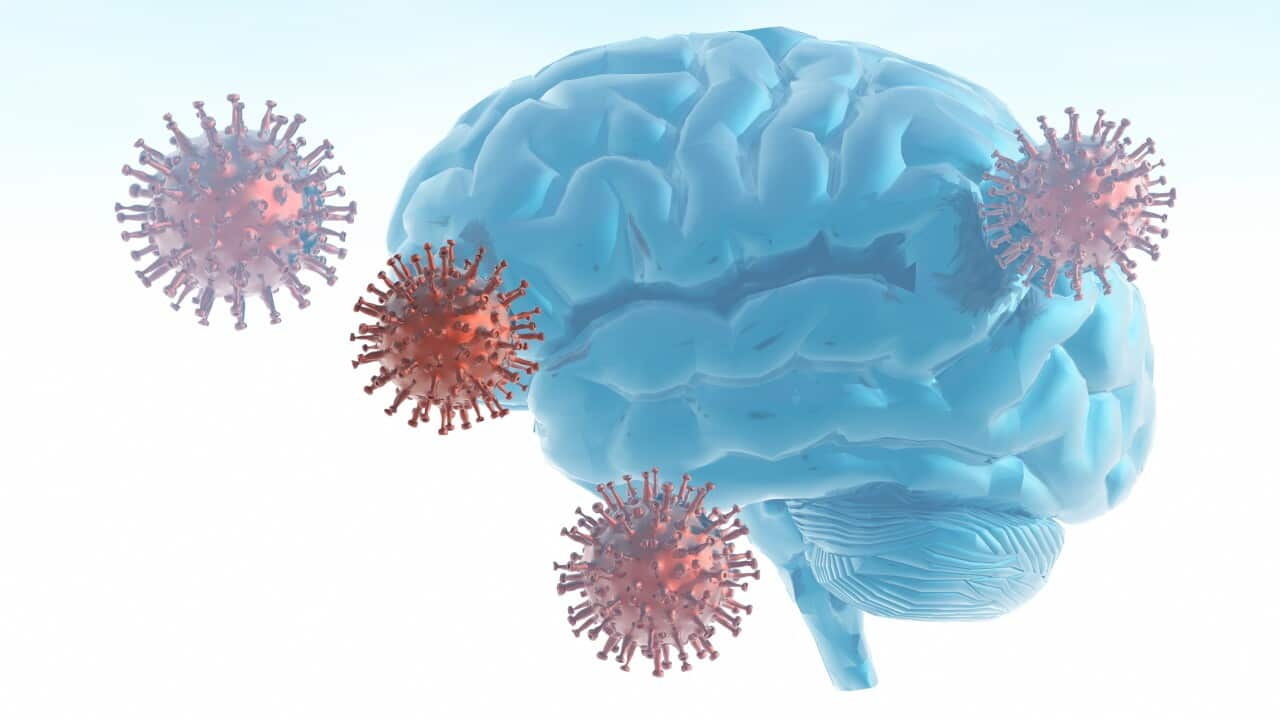Lockdowns, fear, and isolation endured during the height of the COVID-19 pandemic could have lasting impacts on people's cognitive function, according to new research.
Scientists based in the United Kingdom examined brain scans from nearly 1,000 healthy adults to map how their experiences during the COVID-19 pandemic years shaped their brains.
The authors found the brain age — how old their brain appeared to be compared to their actual age — of participants rose by an extra 5.5 months, which could lead to accelerated cognitive decline.
Only participants who were infected with COVID-19 between their scans showed a drop in certain cognitive abilities, such as mental flexibility and processing speed.
What else did the study find?
The study, led by experts at the University of Nottingham, UK, and published in the scientific journal Nature Communications, found stress and isolation can have long-term health impacts on brain function.
Dr Ali-Reza Mohammadi-Nejad led the study and said the results were surprising.
"Even people who hadn't had COVID-19 showed significant increases in brain ageing rates. It really shows how much the experience of the pandemic itself, everything from isolation to uncertainty, may have affected our brain health," he said.
The changes were most noticeable in older people, men, and those from more disadvantaged backgrounds.
Dorothee Auer, professor of neuroimaging and senior author of the study, said disadvantaged groups were more likely to be under strain, reminding us that "brain health is shaped not only by illness, but by our everyday environment".
"The pandemic put a strain on people's lives … we can't yet test whether the changes we saw will reverse, but it's certainly possible, and that's an encouraging thought," she said.
What shapes brain health — and why it matters?
So, what happens when your brain health is compromised?
Dr Oscar Murphy, a senior clinical research fellow at Australian medical research group the Bionics Institute, explained how our brain health can change.
"Your brain has connections that make sure that all the communication in the brain can pass through easily and different parts of the brain can communicate to one another," Murphy told SBS News.
"These links between neurons are really important to make sure that the brain is working properly and if these are interrupted, which can be seen in certain neurodegenerative conditions, this is what we might call an acceleration or worsening of brain aging."
He said younger people have more connections and a greater amount of grey and white matter in their brains.
As we age, our brain's ability to communicate slowly gets worse, which can be accelerated by external factors like stress and anxiety.
"One way of viewing Alzheimer's is that it is the end of brain age, where the communication between brain regions breaks down," Murphy said.
An ageing brain can lead to issues with memory and cognitive function, but these symptoms can be reversed.
"The best things for brain health are the things that are also good for your overall health and wellbeing.
"The main things we would say are reducing stress, making sure you've got enough exercise, that you have a healthy diet, and that you have good, proper sleep."
For the latest from SBS News, download our app and subscribe to our newsletter.

